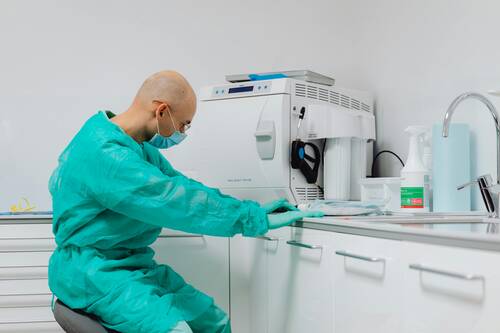
11 Sep Preserving Precision: Maintaining a Medical Research Laboratory
Medical research laboratories represent the very heart of innovation in healthcare and disease treatment. However, medical research labs rely heavily on highly sensitive machinery. For optimal performance, such machines require constant care and maintenance. Each of the HPLC, GC, MS, and environmental chambers, among others, plays an indispensable role in the research process. It is vital to keep such instruments in good condition.
High-Performance Liquid Chromatography: HPLC – Workhorse of the Analysis
HPLC represents a powerful technique of separation and analysis of everything from drugs to proteins. In order for the results to be valid and reproducible, the instrument requires constant care. This includes:
Mobile phase filtration: to prevent contaminants from entering the system.
Column care: proper storage and handling to extend column life.
Pump maintenance: regular checks and replacements prevent leaks and maintain accuracy.
Detector maintenance: Cleaning and calibration are necessary to maintain the sensitivity and precision of the detection. GC-Volatile Analyzer Gas chromatography plays an important role in analyzing volatiles such as gases and VOCs. Some of the most important maintenance procedures are:
Carrier gas purification: gas purity must be ensured in order to avoid baseline noise and ghost peaks.
Column: proper storage, proper handling not to damage and maintain efficiency.
Detector maintenance: cleaning and calibration regularly to show correct detection.
Maintenance of the injector: proper cleaning, which can prevent carry over and correct sample injection
MS-Mass Spectrometry: The Molecular Detective
Mass Spectrometry is a technique that identifies and quantifies molecules. Here are some useful maintenance measures for this equipment to give precise results. These include:
Vacuum system: For maximum efficiency of ionization to take place and analysis of sample, optimum levels of vacuum are necessary.
Ion source: Cleaning of it prevents contamination and allows one to measure with precision.
Mass analyzer calibration: Calibration should be done routinely in order to obtain accurate mass determination.
Detector maintenance: cleaning and calibration for optimum sensitivity and signal-to-noise ratio. Incubators: The Controlled Environment
Incubators are an essential element for culturing cells and microorganisms. For the best growth of the cultures, incubators do require proper maintenance. That includes:
Temperature calibration: right temperature.
Humidity control: to provide the right level of humidity required for cell culture.
Cleaning and disinfection: necessary to avoid contamination and to provide a sterile environment.
Air filtration: provides quality air to avoid microbial infection. Environmental Chambers: Simulating Real-World Conditions
Environmental chambers try to mimic some environmental conditions. Such a chamber needs maintenance for correct test results. This involves:
Temperature and humidity control: This helps in allowing the temperature and humidity around the chamber to be well regulated.
Lighting control: To have control of light during experiments at the right levels
CO2 control: Ensures that CO2 levels are maintained as required for cell culture experiments.
Air filtration: This ensures the air quality within a chamber does not get contaminated.
Ultra-Low Freezers: Preserving Precious Samples
Ultra-low freezers offer key storage to very low-temperature biological samples, which require decent maintenance in order to preserve sample integrity. This includes:
Temperature monitoring: In construction, one would consider checks regularly for the consistency of temperature.
Door seal maintenance: A design such as this prevents temperature fluctuations but can maintain sealing effectively.
Compressor maintenance: Routine checks and maintenance will prevent breakdowns.
Cleaning and disinfection: The prevention of contamination allows maintenance of a clean environment.
The Importance of Professional Maintenance
Medical research lab equipment repair for hplc is a complicated process, hence, quite specialized in knowledge and skills. While simple repair & maintenance can be done within an institution, major repairs and calibration necessarily have to be left to professional technicians. Professional technicians have the expertise and tools necessary for effective diagnosis and repairs of equipment for optimal performance with minimum downtime.
With regular investment in maintenance, medical research labs can protect valuable equipment and ensure that test results are valid and trustworthy in order to support progress in healthcare.
The information on MedicalResearch.com is provided for educational purposes only, and is in no way intended to diagnose, cure, or treat any medical or other condition.
Some links may be sponsored. Products, included compounded prescriptions above are not warranted or endorsed.
Always seek the advice of your physician or other qualified health and ask your doctor any questions you may have regarding a medical condition. In addition to all other limitations and disclaimers in this agreement, service provider and its third party providers disclaim any liability or loss in connection with the content provided on this website.
Last Updated on September 11, 2024 by Marie Benz MD FAAD
